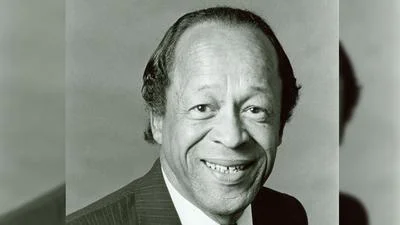State Senator Mattie Hunter | Illinois General Assembly
State Senator Mattie Hunter | Illinois General Assembly
According to the Illinois General Assembly site, the legislature summarized the bill's official text as follows: "Amends the Property Tax Code. Provides that a county opting out of the special assessment programs to reduce the assessed value of certain residential real property shall not disqualify or shorten the maximum eligibility periods for any property approved to receive a reduced valuation prior to the county opting out. Requires that the special assessment programs be available to all qualifying residential real property regardless of whether or not the property has or is currently receiving any other public financing or subsidies or subject to any regulatory agreements with any public entity, or both. If an owner is approved for the reduced valuation prior to December 31, 2037 and the provisions are not subsequently extended, this shall not disqualify or shorten the maximum eligibility periods for any property approved to receive a reduced valuation. Provides that, if the chief county assessment officer has not created application forms, the chief county assessment officer shall make publicly available and accept applications forms that shall be available to local governments from the Illinois Department of Revenue. If a county Internet website exists, the application materials, as well as any other program requirements used by the county (such as application deadlines, fees, and other procedures required by the application) must be published on that website, otherwise it must be available to the public upon request at the office of the chief county assessment officer. On an annual basis, requires the Illinois Housing Development Authority to calculate and make available on its website the minimum per square foot expenditure requirements to be applicable statewide to be eligible for the reduced valuation, which shall include the historical annual expenditure requirements starting with calendar year 2021. Changes reference to improvements to existing residential real property to substantially rehabilitated residential real property. Makes other changes."
The following is our breakdown, based on the actual bill text, and may include interpretation to clarify its provisions.
In essence, the bill amends the Property Tax Code to ensure counties opting out of special assessment programs do not affect previously approved property for reduced valuations and mandates that such programs must be accessible to qualifying residential properties, irrespective of any additional public financing or regulatory agreements. It requires the chief county assessment officer to provide application forms publicly, and if a county has a website, the form and relevant information must be published there. The Illinois Housing Development Authority is to calculate and publish expenditure requirements for reduced valuation eligibility annually on its website. It specifies eligibility criteria for properties, application and renewal processes, the formula for determining assessed value reduction percentages for properties, and clarifies terminologies like “affordable units” and “qualifying income-based rental subsidy program.” Definitions and requirements for "qualifying rehabilitation" and "primary building systems" are also detailed. If provisions expire post-December 31, 2037, existing approvals maintain their eligibility periods.
Mattie Hunter has proposed another three bills since the beginning of the 104th session.
Hunter graduated from Monmouth College in 1976 with a BA.
Mattie Hunter is currently serving in the Illinois State Senate, representing the state's 3rd Senate District. He replaced previous state senator Elga L. Jefferies in 2003.
Bills in Illinois follow a multi-step legislative process, beginning with introduction in either the House or Senate, followed by committee review, floor debates, and votes in both chambers before reaching the governor for approval or veto. The General Assembly operates on a biennial schedule, and while typically thousands of bills are introduced each session, only a fraction successfully pass through the process to become law.
You can read more about bills and other measures here.
| Bill Number | Date Introduced | Short Description |
|---|---|---|
| SB1911 | 02/06/2025 | Amends the Property Tax Code. Provides that a county opting out of the special assessment programs to reduce the assessed value of certain residential real property shall not disqualify or shorten the maximum eligibility periods for any property approved to receive a reduced valuation prior to the county opting out. Requires that the special assessment programs be available to all qualifying residential real property regardless of whether or not the property has or is currently receiving any other public financing or subsidies or subject to any regulatory agreements with any public entity, or both. If an owner is approved for the reduced valuation prior to December 31, 2037 and the provisions are not subsequently extended, this shall not disqualify or shorten the maximum eligibility periods for any property approved to receive a reduced valuation. Provides that, if the chief county assessment officer has not created application forms, the chief county assessment officer shall make publicly available and accept applications forms that shall be available to local governments from the Illinois Department of Revenue. If a county Internet website exists, the application materials, as well as any other program requirements used by the county (such as application deadlines, fees, and other procedures required by the application) must be published on that website, otherwise it must be available to the public upon request at the office of the chief county assessment officer. On an annual basis, requires the Illinois Housing Development Authority to calculate and make available on its website the minimum per square foot expenditure requirements to be applicable statewide to be eligible for the reduced valuation, which shall include the historical annual expenditure requirements starting with calendar year 2021. Changes reference to improvements to existing residential real property to substantially rehabilitated residential real property. Makes other changes. |
| SB1912 | 02/06/2025 | Amends the Underserved Health Care Provider Workforce Act. Changes the definition of "designated shortage area" to mean an area designated as a medically underserved area or a health professional shortage area (rather than a physician shortage area, a medically underserved area, or a critical health manpower shortage area). Changes the term "eligible medical student" to "eligible student", and includes in the definition of that term a person who is studying optometry in an optometry college or institution located in Illinois and that a person may agree to practice full-time in a designated shortage area as an optometrist or anesthesiologist one year for each year he or she is a scholarship recipient. Includes a rural health center, a federally qualified health center, a federally qualified health center look alike, and an optometric office in the definition of "medical facility". Includes an optometrist in the definition of "eligible health care provider". Includes an obstetrician or gynecologist in the definition of "primary care physician". Includes loan repayment recipients in a provision regarding scholarship recipients who fail to fulfill specified obligations, and provides that the amounts paid by these scholarship or loan repayment recipients shall be deposited into the fund where the payment originated from (rather than the Community Health Center Care Fund). Repeals a different provision defining "primary care physician". Effective January 1, 2026. |
| SB1913 | 02/06/2025 | Amends the Child Care Act of 1969. Provides that an entity that contracts with the Department of Children and Family Services, the Department of Early Childhood, a child care facility, or a non-licensed service provider to provide a service that places the entity's employees in a child care facility shall require each employee who is placed or will be placed in such a facility to undergo a criminal background investigation. Provides that each entity shall submit an applicable employee's fingerprints to the Illinois State Police in the form and manner prescribed by the Illinois State Police. Sets forth provisions concerning the processing of an employee's fingerprints and actions that the Illinois State Police shall take regarding the criminal background investigation. Provides that information concerning the convictions of an entity's employee who is placed or will be placed in a child care facility and who is investigated, including the source of the information and any conclusions or recommendations derived from the information, shall be provided, upon request, to such entity and the entity's employee prior to final action by the Department of Children and Family Services or the Department of Early Childhood under the agencies' respective authority on the application. Sets forth provisions concerning the transmission of information about an employee's criminal charges and the protection of confidential information. Provides that any employee of the Department of Children and Family Services, the Department of Early Childhood, the Illinois State Police, or a child care facility receiving confidential information who gives or causes to be given any confidential information concerning any criminal convictions of an applicant, employee, or volunteer of a child care facility or non-licensed service provider or an employee who is placed in a child care facility by a contracted entity, shall be guilty of a Class A misdemeanor unless release of such information is authorized by the provisions concerning criminal background investigations. |
| SB1301 | 01/28/2025 | Amends the Deposit of State Moneys Act and the Public Funds Investment Act. Provides that the State Treasurer or any public agency may consider the current and historical ratings that a financial institution has received under the Illinois Community Reinvestment Act when deciding whether to deposit State or public funds in that financial institution. Provides that, effective January 1, 2026, no State or public funds may be deposited in a financial institution subject to the Illinois Community Reinvestment Act unless either (i) the institution has a current rating of satisfactory or outstanding under the Illinois Community Reinvestment Act or (ii) the Department of Financial and Professional Regulation has not yet completed its initial examination of the institution pursuant to the Illinois Community Reinvestment Act. Makes conforming changes. Effective January 1, 2026. |
| SB1302 | 01/28/2025 | Repeals the Senior Citizens and Persons with Disabilities Property Tax Relief Act and removes all cross-references to the Act in various statutes. Amends the Illinois Act on the Aging. Requires the Department on Aging to implement and administer the Benefits Access Program and to establish the eligibility criteria under the program for: (1) the Secretary of State with respect to reduced fees paid by qualified vehicle owners under the Illinois Vehicle Code; (2) special districts that offer free fixed route public transportation services for qualified older adults under the Local Mass Transit District Act, the Metropolitan Transit Authority Act, and the Regional Transportation Authority Act; and (3) special districts that offer transit services for qualified individuals with disabilities under the Local Mass Transit District Act, the Metropolitan Transit Authority Act, and the Regional Transportation Authority Act. Sets forth household income eligibility limits and other eligibility requirements under the program. Authorizes the Department to adopt rules concerning automatic renewals and appeal rights under the program. Makes corresponding changes concerning the program to the Metropolitan Transit Authority Act, the Local Mass Transit District Act, the Regional Transportation Authority Act, the Illinois Public Aid Code, the Older Adult Services Act, and the Illinois Vehicle Code. Further amends the Illinois Act on the Aging by removing a requirement that the Department: (i) study the feasibility of implementing an affirmative action employment plan for the recruitment, hiring, and training of persons 60 years of age or older; and (ii) develop a multilingual pamphlet to assist physicians, pharmacists, and patients in monitoring prescriptions provided by various physicians and to aid persons 65 years of age or older in complying with directions for proper use of pharmaceutical prescriptions. Adds a requirement that the Department implement the Older Americans Act. Removes provisions requiring a Community Care Program Medicaid Initiative and a Community Care Program Medicaid Enrollment Oversight Subcommittee. Makes other changes. |






 Alerts Sign-up
Alerts Sign-up